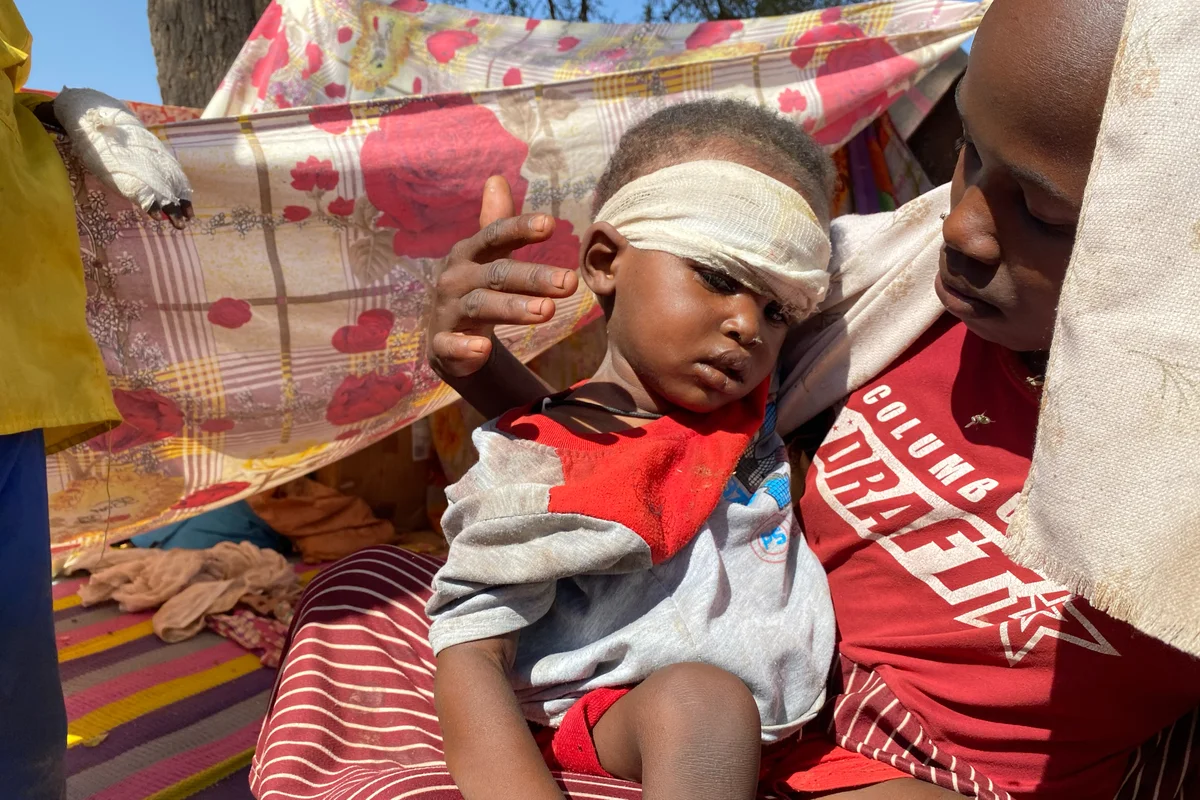Copyright independent

International Criminal Court prosecutors announced that they are preserving evidence from Sudan’s Darfur region of potential war crimes undertaken by a paramilitary force, after they reportedly killed hundreds of people and seized a key government stronghold. In a statement, the prosecutors office said that the court "is taking immediate steps regarding the alleged crimes in el-Fasher to preserve and collect relevant evidence for its use in future prosecutions.” The alleged atrocities "are part of a broader pattern of violence that has afflicted the entire Darfur region" and they "may constitute war crimes and crimes against humanity," the statement said. The Rapid Support Forces, a powerful paramilitary group, captured the key city of el-Fashir last week after besieging it for 18 months. More than 70,000 people have fled el-Fashir so far, and survivors have told Reuters about the separation and killing of men who left the Darfur city for safety. Experts have said the reported violence bears the hallmarks of previous episodes in Darfur that were widely labelled as genocide. The fate of almost 200,000 people thought to be trapped in the city remains unknown. Witnesses have reported fighters going house to house, killing civilians and committing sexual assaults. According to the World Health Organization, groups of gunmen killed at least 460 people at a hospital and abducted doctors and nurses. Many details of the hospital attack and other violence in the city have been slow to emerge, and the total death toll remains unclear. The fall of el-Fasher heralds a new phase of the brutal, two-year war between the RSF and the military in Africa's third-largest country. The head of the Red Cross says history is repeating itself in Sudan's Darfur region after reports of mass killings during the fall of the city of el-Fashir to the Rapid Support Forces paramilitary last week. The RSF's capture of el-Fashir, the Sudanese army's last holdout in Darfur, marked a milestone in Sudan's civil war, giving the paramilitary force de facto control of more than a quarter of the country's territory. Hundreds of civilians and unarmed fighters may have been killed during the city's fall, the U.N. human rights office said on Friday. Witnesses have described RSF fighters separating men from women and children, with gunshots ringing out afterwards. The RSF denies harming civilians. The situation in Sudan is "horrific," International Committee of the Red Cross (ICRC) President Mirjana Spoljaric told Reuters in a weekend interview during a visit to Riyadh. She said tens of thousands of people had fled el-Fashir after the RSF seized the city and it was likely that tens of thousands more were trapped there without access to food, water or medical assistance. "It's history repeating, and it becomes worse every time a place is taken over by the other party," she said. A crackdown on Darfur rebels in the 2000s led to years of ethnically driven violence that killed hundreds of thousands in what was widely labelled genocide. The RSF has its roots in the "Janjaweed" militias mobilised by the government at the time. Spoljaric also said the ICRC was "extremely concerned" about reports of a suspected massacre at the Saudi Hospital, the last-known functioning medical facility in el-Fashir, although it could not yet substantiate what happened there. ICRC staff in the nearby town of Tawila had heard reports that people fleeing were "sometimes collapsing and even dying out of exhaustion or because of their wounds," Spoljaric said, calling the situation "absolutely beyond what we can consider acceptable." The United States has said the RSF had committed genocide in the Darfur city of Geneina during an earlier stage of the two-and-a-half-year civil war, which the group denies. Rights groups and U.S. officials have also accused the RSF and allied militias of ethnic cleansing in the region. Asked about her messaging to alleged foreign backers of parties to the conflict, Spoljaric said: "Especially those states that have an influence on parties to conflict are under responsibility to do the necessary to restrain them and to make sure that they protect civilian populations." The United Arab Emirates has been accused of sending the RSF substantial military support but has repeatedly denied doing so. The rival Port Sudan-based authorities have foreign backers including Egypt and deployed Iranian-made drones to try to turn the tide of the conflict last year. More than 70,000 people have fled el-Fashir since October 26, according to the International Organisation for Migration, but little is known about the fate of almost 200,000 others thought to have remained there during the 18-month RSF assault and siege of the city. Spoljaric said the world was living through a "decade of war," with armed conflicts doubling in the past 15 years to approximately 130, and urged parties to conflicts from the Gaza Strip to Ukraine to uphold the rules of war. She said the proliferation of conflicts was being accelerated by rapidly evolving military technology, particularly drones, which "create an environment where nowhere is safe anymore." In the lead-up to the RSF's takeover of el-Fashir, residents told Reuters they had been taking refuge in underground bunkers to try to protect themselves from drones and shells after intensifying attacks on displacement shelters, clinics and mosques. Additional reporting by Reuters.



